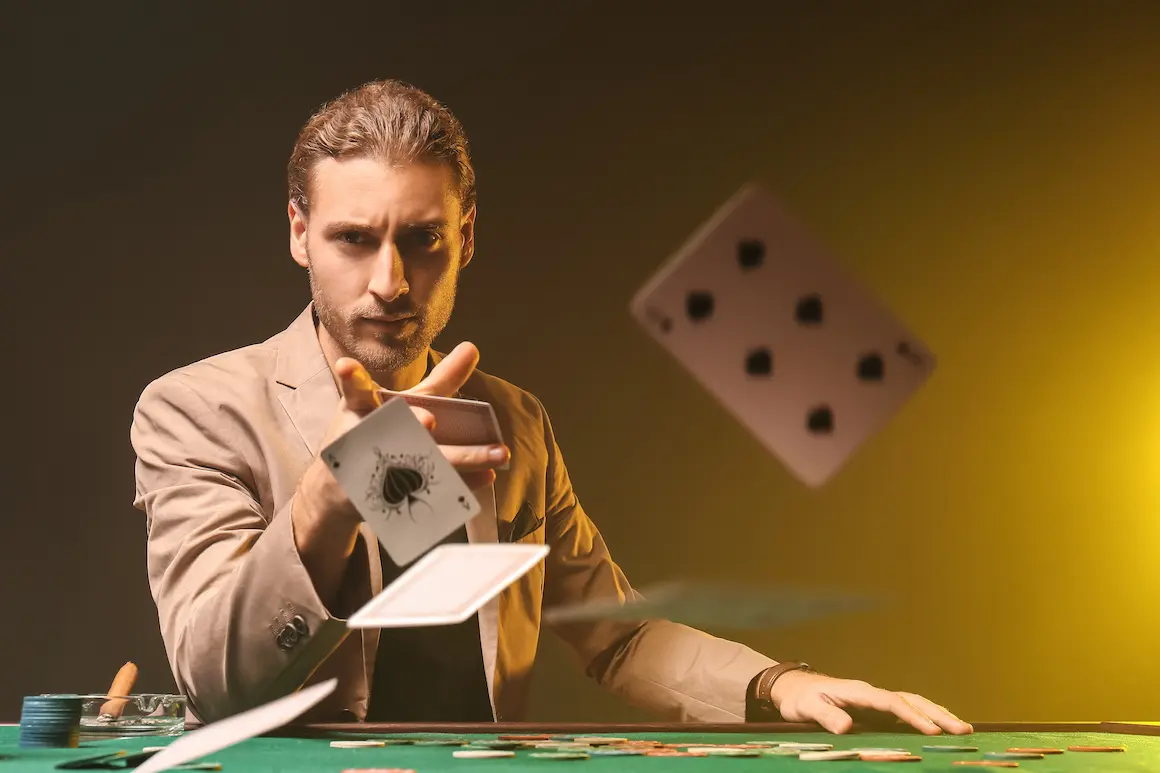In all its diversity, Roulette is an exciting game that is distinguished by the simplicity of the rules and the high speed of the game. All you need to play Roulette is a marked wheel and a few chips in your pocket. The device and its design have not changed much since it was first created.
With the emergence of online casinos, interactive slots appeared, and it became even easier to play. You don’t have to be personally present at the gaming table, as in poker. Or have a great gaming experience, like in blackjack. Just choose a casino from a vast number of options, go through a simple registration stage and place your first bet.
Online Roulette is no different from that in land-based casinos; only the place of the croupier at the table is empty. The game is characterized by high dynamics and clarity of the rules. There are many offers on gambling enthusiasts’ forums to sell sale, no-risk winning strategies. However, none of them is proved by evidence, which means their use remains at the player’s own risk.
The history of French roulette

Based on the name itself, it becomes clear which country the first Roulette appeared in. It was great entertainment for the poorer parts of society. According to historical data, such devices were the entertainment of the soldiers in both ancient China and ancient Greece. They used round military shields, lined into segments, to play the game.
The word “roulette” means “little wheel” in French. The official date of the appearance of the Roulette is 1655. The founder is the French mathematician Blaise Pascal, for whom this invention was only an intermediate step towards the development of the perpetual motion machine.
Initially, the Roulette was divided into 38 segments (0 and 00 were on it), but later, the Roulette with two zeros was labelled “American”.
French roulette rules
The essence of the game lies on the surface and is clear at first glance at the playing wheel. The player has only one opponent – the casino itself in the person of the croupier. To the left of the client is the wheel; in front of the player is a lined betting grid, behind which is the croupier. The designations on the field are universal and do not change in different establishments.
For example, three colours mark the wheel: red, black and green. Zero is green for the convenience of the players. On Roulette, as well as on the betting section, there are numbers from 1 to 36; 18 are black, 18 are red. The numbers on the wheel and the gaming table are the same. The numbers are arranged randomly on the roulette wheel, but the red and black segments alternate. But on the table, the numbers go in order, keeping the same colour scheme. The table layout consists of 12 rows with 3 numbers each. 12 numbers make up one column. This panel is used to place bets. Depending on the type of bet, chips are placed in specific segments.
After everyone has placed their bets, the croupier lightly spins the wheel, the ball hits one of the sectors, and someone’s bet wins.
The most popular among players are simple external bets. This name had been given to them due to the remote position of the cells on the table for chips.
The equal chance bet deserves special mention. It means that the chance of winning is 50%. Same as losing. There are three varieties of equal chance: red/black, even/odd, over/under. This bet implies a payout of 1:1, being the safest for beginners. The amount is small, but the risk of losing is much lower.
A colour bet implies a win if the player guesses the colour of the dropped segment. The place for chips is located at the bottom of the table and is represented by two rhombuses in black and red.
The even/odd bet also has a 50% success rate and is calculated based on whether the number drawn can be divided by 2. The places for the bet chips are marked with the even/odd.
If the ball on the wheel hits the numbers 1-18, the “under” bet wins. If the number the ball landed on is in the range of 19-36, the “over” bet will win.
Complex bets are often chosen by professionals who have a rich gaming experience and a strategy they follow during the game. A bet with a 1:3 chance of winning implies 12 numbers out of 36. It can be one column or a dozen of consecutive numbers. There is a particular cell for chips on the field. With these types of bets, the chances of winning are 1:2.
Suppose the player bets on 6 numbers; the payout amount for winning is 1:5. The “corner”, or 4 number bet, is used pretty rarely and has a high risk of losing. But there’s also more to win here – 1:8. A split – two numbers – will be paid to the player as 1:17 if won, but if you guess a specific number, the net profit will be the size of 35 initial bets. However, before placing such a bet, it is worth considering that the percentage of the probability of winning, in this case, is only 2.7% according to the probability theory, but the loss is expected in 97.3% of cases.
Winning strategies in playing French roulette

It is difficult to use mathematical calculations for the game of Roulette. Either one of these strategies will help, with a bit of luck, increase the chance of winning but does not guarantee a particular outcome. The main feature of Roulette is that each new round does not depend on the previous ones. There is no certainty that a red one will definitely fall out after twenty black segments. Each new circle is calculated from the beginning.
The Martingale system is quite aggressive and, if used incorrectly, can make a careless player go bankrupt in a matter of minutes. Its essence lies in doubling the amount of the bet after each loss. The essence of the bet remains the same. When the bet wins, the player returns to the original amount again. There is also a “reverse” Martingale system, that is, the bet doubles after each win.
The d’Alembert system is more economical and offers the player to increase the bet by a certain amount after each loss. It usually varies from 0.5 to 1% of the player’s pot.
He/Him
19
349 articlesKristaps is an expert in the field of online casinos. Since the age of 20, he has been interested in casino games; poker and blackjack are his favorites. Thanks to his studies and work experience, he has found himself a gambling critic and analyst. He likes to share his own authentic experience with the audience, so his articles are very informative. Kristaps' lifelong dream is to participate in a poker tournament in Las Vegas.
Nationality
latvian
Lives In
Latvia
University
University of Latvia
Degree
International Marketing and Advertising
More info on Kristaps Gauja






 kristaps.gauja@casinobaltics.com
kristaps.gauja@casinobaltics.com 
